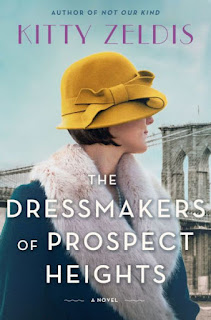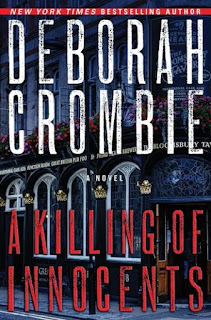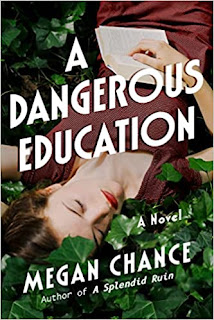 and for insurance newspapers before finding the courage to write her first novel. Her work has been called "Intricate, masterly, and delightfully imaginative" (Library Journal), "Exquisite" (Austenesque Reviews), and "Nuanced" with a "hint of D.H. Lawrence" (BBC Culture). Her books have been Indie Next picks and have received starred reviews from Booklist and Library Journal.
and for insurance newspapers before finding the courage to write her first novel. Her work has been called "Intricate, masterly, and delightfully imaginative" (Library Journal), "Exquisite" (Austenesque Reviews), and "Nuanced" with a "hint of D.H. Lawrence" (BBC Culture). Her books have been Indie Next picks and have received starred reviews from Booklist and Library Journal.
She lives in northern Michigan with her husband and three children, and can often be found with her laptop at local coffee shops.
Greeley applied the Page 69 Test to her new novel, Marvelous, and reported the following:
From page 69:Visit Molly Greeley's website.Catherine ate Papa's stories up like warm bread. They sustained her between his long trips abroad, though her mind creaked with hunger by the time he finally returned, laden with gifts for her and Maman. Gifts, and still more stories. He brought the world into their home, impossibly wide and smelling of river stink and road dust and spices.I'd say page 69 of Marvelous gives the reader a hint into one protagonist's - Catherine's - character; it shows, at least, something of her background and that she longs to know more of the world. It also introduces the reader to Pedro, the book's other protagonist, albeit obliquely, as he is the little hairy boy Catherine's father tells her about. The page hints as well at the culture of superstition in which the time period of the book is steeped. However, if a reader opened to this page without having read the book's description, they wouldn't have any sense of Marvelous as a historical take on the Beauty and the Beast fairy tale.
He spoke of things both prosaic and astonishing: roads so riddled with holes they had to journey entirely over fields; a swindling spice seller. Twins born joined together at the waist, still living when Papa passed through their town and held aloft by the local priest as proof of their mother's heresy; already dead when he traveled back the same way.
A boy brought to court from a far-off, primitive country, the son of a savage king; a prince covered in hair like a dog, head to toe, a marvelous brew of human and animal who was welcomed by the French king, and then educated, civilized, tamed.
Q&A with Molly Greeley.
The Page 69 Test: The Heiress.
--Marshal Zeringue






















